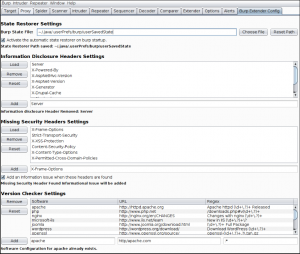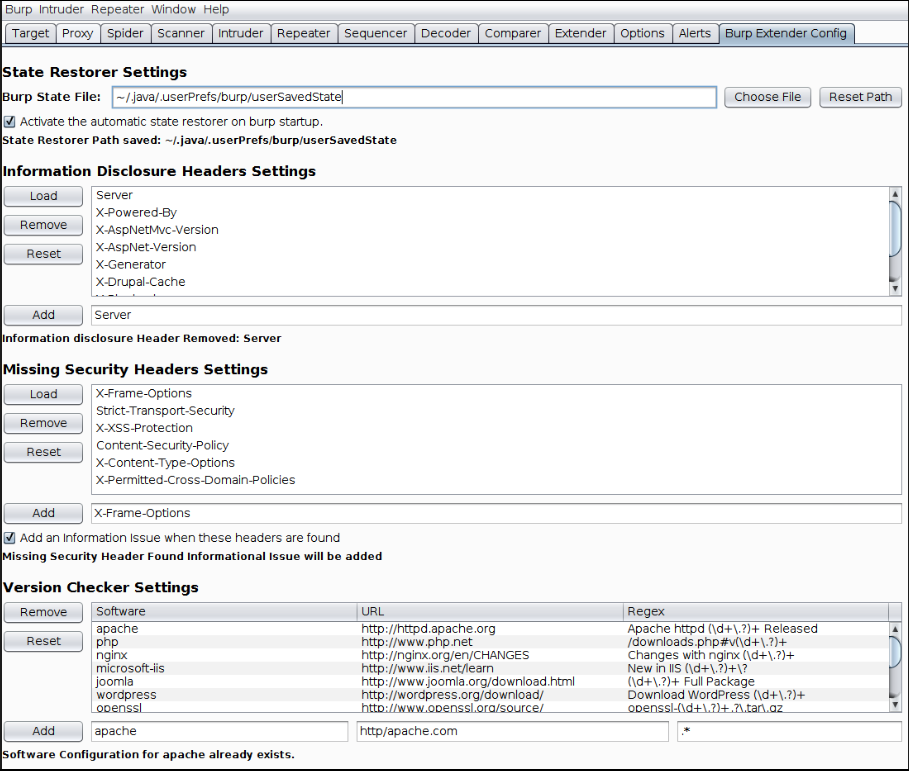At Portcullis, one of the more frequent assessments we perform are web application assessments. One of the main challenges we face during these assessments is to look for information that can either help escalate our privileges or allow us to gain access to different functionalities of the web application. Unauthorised access to functionality can often be considered an issue however, testing for this can also lead to information about the type of web server an application is running on, the underlying host and its version.
To check whether an application is out-of-date or is there are any known vulnerabilities associated with said version we must first obtain the server and version information. This can often prove time consuming and can be subject to human error. To improve effectiveness and reduce occurrence of human error we developed a BurpSuite extension that checks whether the server discloses any information within the response headers and automatically adds the issue to an issues list.
In addition to checking for disclosed information, the extension with also make a request to the web server’s main page for the latest version and compare this to the application in question to confirm that the application in question is the most up to date available. The most common web servers, and some others, are already bundled with the extension. However, the extension also provides a configuration tab in which the headers that are checked for information disclosure can be modified, removed or added. This also applies to the software, URLs and REGEX used to access the latest versions.
In the above image, you will see that there are two other pieces of functionality bundled with the extension. The first, following the same line of enquiry as the previous (checking the server’s response headers), the extension is also able to check for missing security headers. As before, whilst most of the security headers are already bundled with the extension, it is possible to add more/alternative headers to be check for. Additionally, there is an option to add an informational issue if any of the security headers are found.
The second functionality is a default burp state restorer. Following good practice, a new assessment would start with a clean burp state. To improve efficiency, instead of repeatedly loading the same path state, you can use the extension to load a state file from any chosen path. This will save you at least 4 clicks and you won’t forget to configure anything when starting burp.
Finally, the last piece of functionality provided by the extension is a new tab on the request and response editor window that parses a JSON object and prints it with indentation, making it easier to read. This will prove useful when dealing with web services or AJAX requests with JSON responses.
It should be noted that when reporting the information disclosure and the missing headers issues, only one issue is reported per host. In cases where different finding appear in later responses, further issues will be added with the new findings.
The source code of the application can be found at : https://github.com/eonlight/BurpExtenderHeaderChecks
This blog post was written by Ruben




